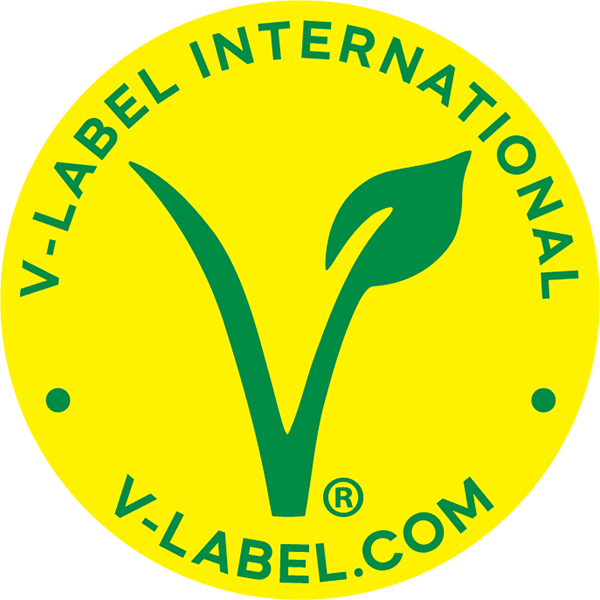Boost Cosmetic Quality: The Role of Vegan Certification in Building Trust
In an era where transparency and ethical practices are increasingly shaping consumer behavior, vegan certification is emerging as a game-changer for the beauty and cosmetics industry. For quality managers working in beauty companies, understanding and embracing vegan certification is no longer optional—it’s essential. This article explores how vegan certification strengthens quality standards, builds consumer trust, and elevates brands in a competitive market.

How Vegan Certification Strengthens Standards
Vegan certification is more than just a label—it’s an additional standard, alongside ethical and quality criteria, that helps position a product as premium. A certification, such as V-Label, ensures that products are entirely free from animal-derived ingredients and are not tested on animals. The requirement for ingredient traceability, as outlined in Regulation (EC) No 1223/2009 of the European Parliament and of the Council, aligns with global quality standards such as ISO 22716 (Good Manufacturing Practices for Cosmetics) and provides a robust foundation for the transparency of the Label.
Vegan certification requires a thorough analysis of documentation and verification of the supply chain, from raw materials to the final product. This level of control minimizes the risk of non-vegan substances being included in the ingredients used during production, allowing companies to reliably assess the vegan status of their products and the materials they use. Traceability is a cornerstone of quality management. For instance, a study by Transparency Market Research highlights that companies with robust traceability systems often report higher operational efficiency and lower recall rates.
Furthermore, vegan certification aligns with international sustainability goals. By eliminating animal-derived ingredients, companies reduce their environmental footprint. For example, the production of plant-based alternatives often requires fewer resources, such as water and energy, compared to animal-based ingredients. This approach not only supports ethical values but also enhances a brand’s commitment to sustainability.
Vegan certification also encourages innovation. Companies are prompted to explore new formulations and sourcing strategies to meet vegan criteria. This drive for innovation not only improves product quality but also positions companies as leaders in sustainability and ethical production. The ripple effect extends to suppliers, creating a network of businesses dedicated to reducing their environmental and ethical impact.
Moreover, vegan certification contributes to waste reduction. By prioritizing plant-based ingredients, brands can move away from by-products of animal agriculture that are often linked to inefficiencies and environmental degradation. This shift not only enhances product quality but also demonstrates a brand’s commitment to responsible use of environmental resources.
Case Studies of Success
Many beauty brands have leveraged vegan certification to build trust and achieve market success. Consider the case of Cover FX, a cosmetics company known for its commitment to vegan, cruelty-free products, which reported an increase in consumer trust scores, according to a survey conducted by Nielsen.
Another example is Pacifica Beauty, which became a pioneer in offering 100% vegan beauty products. By prominently communicating this, Pacifica differentiated itself in a crowded market, attracting a loyal customer base that values ethical practices. According to a 2022 report by Euromonitor International, brands with vegan certifications experienced a 27% higher growth rate compared to non-certified competitors.
Smaller brands have also found success through certification. Indie brands such as Herbivore Botanicals and Youth to the People have achieved significant market recognition by adhering to vegan principles. These companies highlight how even smaller players can build strong consumer loyalty and compete with established giants by focusing on ethical practices.
Another notable success story is that of E.l.f. Cosmetics. The company’s transition to 100% vegan formulations not only bolstered its reputation but also expanded its customer base. In fact, a 2021 report by Statista revealed that E.l.f. Cosmetics experienced a 23% year-over-year increase in sales following its vegan certification announcement. These results demonstrate the tangible benefits of aligning product development with consumer values.
These examples illustrate how certification not only ensures compliance with ethical and environmental standards but also strengthens brand positioning. It’s a strategic move that quality managers can advocate for, ensuring their companies stay ahead in an evolving market.
Benefits Beyond Compliance
Differentiation in a Competitive Market
In an industry where new brands emerge daily, standing out is key to success. Vegan certification provides a unique selling point (USP) that resonates with eco-conscious and ethically-minded consumers. According to Mintel’s 2023 Global Beauty Trends Report, 49% of consumers are willing to pay a premium for products that align with their values, including vegan and cruelty-free claims.
Enhancing Transparency
Transparency is the backbone of trust. By obtaining a vegan certification, brands signal their commitment to ethical practices and clear communication. This openness builds stronger relationships with consumers who increasingly demand to know what’s in their products and how they’re made. Quality managers play a vital role in ensuring this transparency, from sourcing ingredients to labeling.
Expanding Market Reach
Vegan certification opens doors to new markets. The European Union enforces strict regulations on animal testing and cosmetic labeling. Vegan certification further supports brands by serving as a credible assurance that these standards are being met, helping them build trust with consumers.
Outside the EU, where regulations around ingredient labeling and animal testing may be less clearly defined, vegan certification becomes even more valuable. It offers an added layer of assurance that a product meets high ethical standards, regardless of the local legal framework. Additionally, as veganism grows globally, certified products are gaining traction in emerging markets such as India and Brazil.
Strengthening ESG Commitments
Environmental, Social, and Governance (ESG) criteria are becoming central to business evaluations. Vegan certification directly contributes to ESG goals by promoting sustainability and ethical practices. This alignment enhances a brand’s reputation among investors, stakeholders, and consumers.
Building Long-Term Consumer Loyalty
Incorporating vegan certification fosters long-term consumer loyalty. As ethical and sustainable consumption becomes a priority, consumers tend to stay loyal to brands that align with their values. Research from Nielsen shows that 73% of global consumers say they would definitely or probably change their consumption habits to reduce their environmental impact.
Additionally, younger generations, including Millennials and Gen Z, are driving demand for ethical products. A report by McKinsey & Company highlights that 79% of Gen Z respondents consider sustainability when making purchase decisions. By aligning with these values, brands can build a loyal customer base that spans multiple generations.
Actionable Steps for Quality Managers
- Audit Your Supply Chain: Begin by assessing whether your current ingredients and suppliers align with vegan standards. Identify areas where substitutions with plant-based alternatives are possible.
- Partner with Certification Bodies: Work with trusted organizations like V-Label, which offer comprehensive vegan certification services. These bodies provide guidance on compliance and help streamline the certification process.
- Educate Your Team: Invest in training programs to ensure all departments understand the importance of vegan standards and their role in maintaining compliance.
- Communicate Your Commitment: Once certified, highlight your vegan certification prominently on packaging and marketing materials. Transparency and visibility are critical to building consumer trust.
- Leverage Technology: Use tools like blockchain to enhance traceability and ensure the integrity of your vegan claims. Blockchain solutions offer an immutable record of the supply chain, providing additional assurance to consumers and regulators.
- Engage with Consumers: Host workshops, webinars, or social media campaigns to educate consumers about the importance of vegan certification. This engagement builds brand loyalty and reinforces your commitment to ethical practices.
- Stay Updated on Regulations: Vegan certification is part of a broader regulatory landscape. Keep track of global regulatory changes and ensure your company remains compliant with evolving standards.
The Future of Vegan Certification in Cosmetics
As consumer preferences continue to evolve, vegan certification will play an even greater role in shaping the beauty and cosmetics industry. A report by Allied Market Research predicts that the global vegan cosmetics market will reach $28.5 billion by 2031, growing at a CAGR of 5.9% from 2022 to 2031. This growth underscores the importance of certification in meeting consumer demand and staying competitive.
For quality managers, the message is clear: adopting vegan certification is not just about compliance; it’s about positioning your brand as a leader in quality, ethics, and sustainability. By championing this initiative, you not only enhance product quality but also build lasting trust with consumers.
Are you ready to take the next step? Contact V-Label for guidance on obtaining vegan certification and elevating your brand to new heights.

 Argentina
Argentina Australia
Australia België (NL)
België (NL) Bosna i Hercegovina
Bosna i Hercegovina Brasil
Brasil Chile
Chile 中国
中国 Česká republika
Česká republika Colombia
Colombia Costa Rica
Costa Rica Danmark
Danmark Deutschland
Deutschland Ecuador
Ecuador España
España France
France Ελληνικά
Ελληνικά Hrvatska
Hrvatska Indonesia
Indonesia Italia
Italia Lietuvių
Lietuvių 한국어
한국어 Magyar
Magyar Lebanon (EN)
Lebanon (EN) Melayu
Melayu Mexico
Mexico Nederland
Nederland Nigeria
Nigeria Norge
Norge Österreich
Österreich Perú
Perú Polski
Polski Português
Português Română
Română Русский
Русский Slovenčina
Slovenčina Türkçe
Türkçe South Africa
South Africa Suomi
Suomi Svenska
Svenska Schweiz
Schweiz Українська
Українська الامارات العربية المتحدة
الامارات العربية المتحدة Tiếng Việt
Tiếng Việt